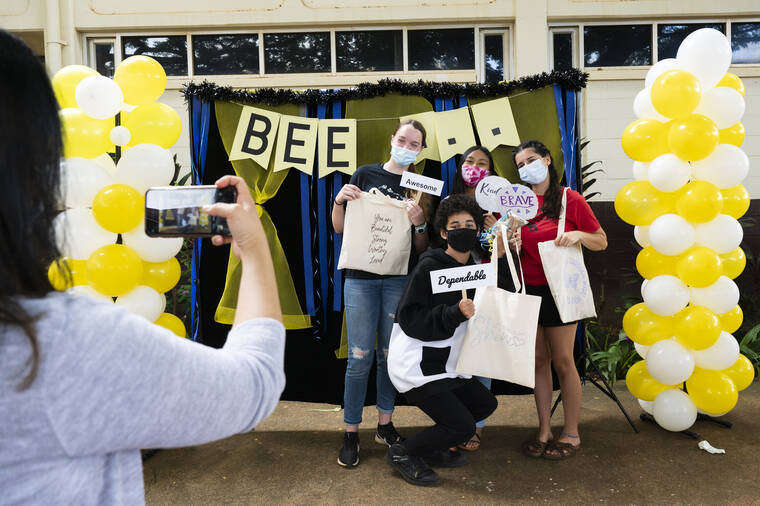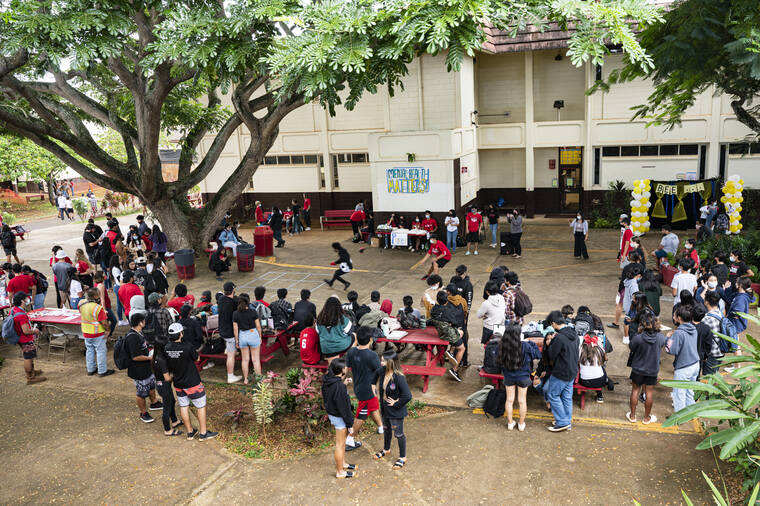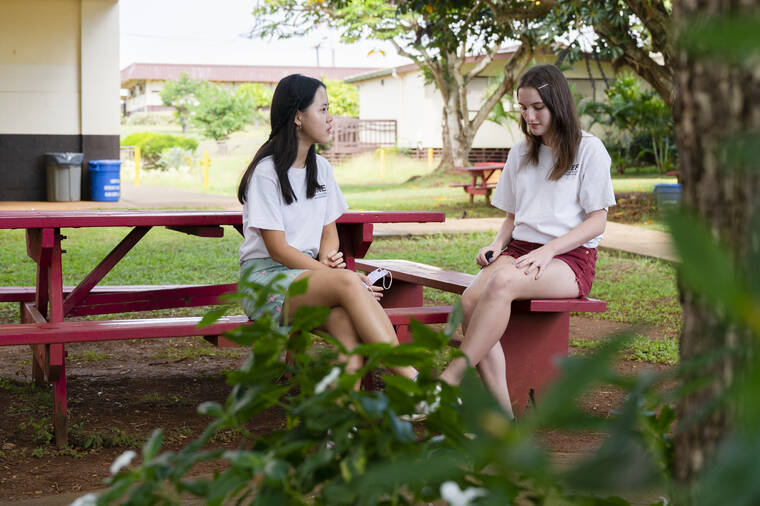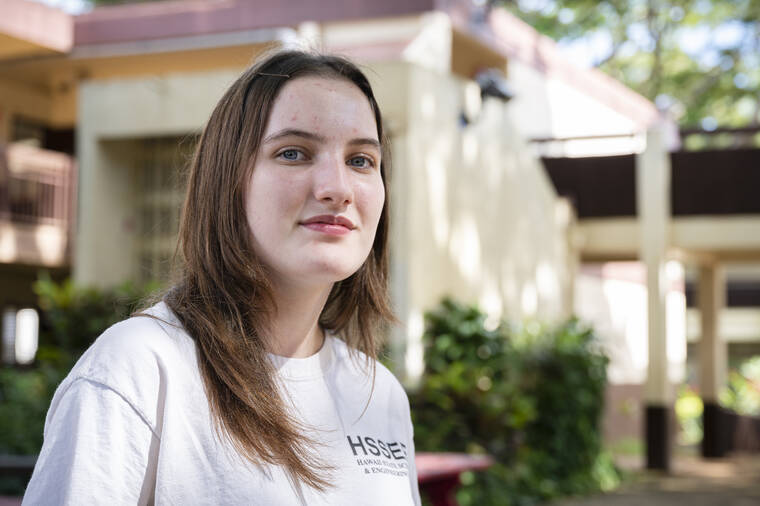LIHU‘E — Last year, Mel Corpuz started to fall behind in his studies during his senior year at Kaua‘i High School.
“During my last year of high school, like many students, I lost my drive,” said Corpuz.
As his academic performance suffered, so did his mental health.
“I’m known for doing my work and expected to do great things by my teachers,” Corpuz said. “Not being able to do that anymore made me feel not as great as I was before, lowering my self-esteem.”
Corpuz was also balancing stress at home. He worried about his parents: his father is in a high-risk category for severe COVID and his mother lost her job due to the pandemic. Isolation and loneliness were also factors.
“There was definitely a mental-health cost (last year),” said Kaua‘i High Counselor Charles Fulks, who is currently on leave and will be returning to work next semester. “These kids, they’re on that computer, and they’re staring at that screen for a year and a half. It’s not the same as being in a classroom. For a lot of these kids, their social outlet is school.”
While many students struggled with isolation, for a small number of students distance learning was a huge relief.
“I’ve always been quite worried about a lot of things, but having (school) at home, I felt like I was in a safer environment,” said a Kaua‘i High senior who asked to remain anonymous to respect her privacy.
Anxiety and depression make attending school difficult for her. In social situations, she suffers from recurring thoughts that others don’t want her around. Distance learning helped her worry less and focus on academics.
For this student, transitioning back into the classroom has been difficult, and escalated her depression and anxiety symptoms.
To cope, she has leaned into her school’s Mokihana Project, a program that provides mental-health services to students including counseling on campus for those with diagnosed mental-health conditions.
“It’s really helped,” said the student. “Whenever I start to feel really stressed at school and something bad has happened, I go straight there. It does make (me) feel better and helps calm me down.”
This student is not alone.
A study conducted by Kaua‘i High seniors Angeline Chan and Juliet Martin under the mentorship of their school’s family-support worker Erika Kim Seu found a huge increase in mental-health symptoms among students.
The study surveyed 114 Kaua‘i teenagers ages 13 to 18 and found that 96% saw a decline in mental health as a result of the pandemic.
The study measured several markers, including a student’s self-reported mood, sleep habits, screen time and time spent alone.
Chan and Martin came up with a project for last year’s science fair in response to their own challenges and seeing the difficulties their friends went through.
“I was constantly just alone, the whole year. Of course (I was) with my family, but I (didn’t have) the peer connection,” said Chan.
Martin struggled with motivation.
“It was hard for me to get myself in my shoes and be like, ‘This is what I’m gonna do today,’” she said.
According to Chan and Martin, their research helped them have conversations with their peers and spread teen-mental-health awareness. Others outside of their school community took notice, too. Their project took third place in a statewide science fair and was recognized by the American Psychological Association and The Queen’s Medical Center.
These student-led mental-health initiatives are growing at Kaua‘i High School.
Earlier this month, students gathered for a mental-health-awareness event organized by the student leadership class.
Chalk art with positive messages — including “live like it’s someone else’s last day” and “smile more” — covered the school courtyard. There was a chorus of laughter and smiles so bright they illuminated through each wearer’s masks.
The event provided students with information about mental health and local resources. Students also got a break from the stresses of the school day to play games, spend time with their peers and focus on self-care.
Senior Rizza Juntilla helped organize the event, and appreciated that the event could be student-led.
“We are all in the same age group, we can relate more,” Juntilla said. “If it was all adults, kids would be shy to participate.”
Students are noticing the effort to support mental health.
Sophomore Makayla Karimi attended the event, and was grateful to be able to spend the time with her friends and learn more about mental health. “(Events like this) give kids something to look forward to,” said Karimi.
Sophomore Logan Campbell agreed, and added, “This school is trying its best to help those who need it.”
Students want mental-health conversations to continue.
“I think (talking about mental health) is something everyone should take the time to do,” said Martin. “The more awareness we spread, the more this topic will be a norm.”
•••
Laurel Smith, staff writer and photographer, can be reached at 245-0424 or lsmith@thegardenisland.com.










Should we start mental awareness at the homeless camps? Government social workers should reach each and every one there to find out why they are living there and how to get them proper housing. Did they recently arrive or are they residents that no longer can afford to have a home of their own? They each have a story but they need help. It is unsafe, unsanitary and unhealthy mentally to allow them to live in this manner though some seem to prefer it.
What fantastic work by these high school students! I hope the adults in the DOE will continue to support them in this mental health initiative, and expand it to all middle and high schools on Kauai.